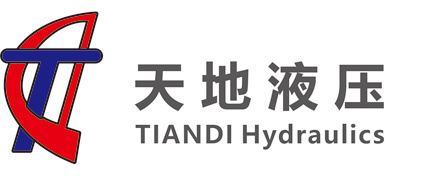GET THE LATEST NEWS FROM THE COMPANY
NEWS CATEGORY
Understanding Hydraulic Flow Restrictor Valves: Essential Components for Fluid Control
Published:
2025-08-03 13:20
Hydraulic flow restrictor valves are essential components in hydraulic systems that regulate the flow rate of hydraulic fluids. By controlling the flow, these valves ensure optimal performance and efficiency of industrial equipment. Understanding how these valves work and their applications can help you make informed decisions in your operations.
At its core, a hydraulic flow restrictor valve functions by creating a pressure drop, which in turn limits the flow of fluid through the system. This is particularly important in systems where precise control of fluid movement is necessary for safety and efficiency. These valves can maintain a steady flow rate, preventing sudden surges or drops that could potentially cause damage to hydraulic components or affect the performance of the machinery.
One of the primary benefits of using hydraulic flow restrictor valves is the enhancement of system performance. By regulating flow, these valves help maintain consistent pressure levels, which is critical for machinery that relies on hydraulic power. This consistency not only prolongs the life of the equipment but also reduces downtime and maintenance costs, making it a wise investment for any industrial operation.
Moreover, hydraulic flow restrictor valves can be utilized in various applications. For instance, they are commonly found in hydraulic lifts, excavators, and manufacturing machinery, where fluid control is vital for operations. In these applications, the valves ensure that movements are smooth and controlled, providing precision in tasks such as lifting, digging, or shaping materials.
Additionally, these valves contribute to energy efficiency. By optimizing flow rates, they minimize wastage of hydraulic fluid, which not only conserves resources but also lowers operational costs. In industries where sustainability is becoming increasingly important, the use of hydraulic flow restrictor valves aligns with efforts to reduce environmental impact while maintaining productivity.
It's worth noting that selecting the appropriate hydraulic flow restrictor valve depends on several factors, including the type of fluid, the desired flow rate, and the system's pressure requirements. Understanding these parameters will help in choosing a valve that meets the specific needs of your hydraulic system.
In conclusion, hydraulic flow restrictor valves are vital for effective fluid management in industrial applications. They enhance performance, improve energy efficiency, and contribute to the longevity of equipment. By ensuring proper flow regulation, these valves facilitate the safe and efficient operation of hydraulic systems, making them indispensable in various industries. Whether you're looking to optimize your current system or considering new installations, understanding the role of hydraulic flow restrictor valves will help you achieve better outcomes in your operations.
At its core, a hydraulic flow restrictor valve functions by creating a pressure drop, which in turn limits the flow of fluid through the system. This is particularly important in systems where precise control of fluid movement is necessary for safety and efficiency. These valves can maintain a steady flow rate, preventing sudden surges or drops that could potentially cause damage to hydraulic components or affect the performance of the machinery.
One of the primary benefits of using hydraulic flow restrictor valves is the enhancement of system performance. By regulating flow, these valves help maintain consistent pressure levels, which is critical for machinery that relies on hydraulic power. This consistency not only prolongs the life of the equipment but also reduces downtime and maintenance costs, making it a wise investment for any industrial operation.
Moreover, hydraulic flow restrictor valves can be utilized in various applications. For instance, they are commonly found in hydraulic lifts, excavators, and manufacturing machinery, where fluid control is vital for operations. In these applications, the valves ensure that movements are smooth and controlled, providing precision in tasks such as lifting, digging, or shaping materials.
Additionally, these valves contribute to energy efficiency. By optimizing flow rates, they minimize wastage of hydraulic fluid, which not only conserves resources but also lowers operational costs. In industries where sustainability is becoming increasingly important, the use of hydraulic flow restrictor valves aligns with efforts to reduce environmental impact while maintaining productivity.
It's worth noting that selecting the appropriate hydraulic flow restrictor valve depends on several factors, including the type of fluid, the desired flow rate, and the system's pressure requirements. Understanding these parameters will help in choosing a valve that meets the specific needs of your hydraulic system.
In conclusion, hydraulic flow restrictor valves are vital for effective fluid management in industrial applications. They enhance performance, improve energy efficiency, and contribute to the longevity of equipment. By ensuring proper flow regulation, these valves facilitate the safe and efficient operation of hydraulic systems, making them indispensable in various industries. Whether you're looking to optimize your current system or considering new installations, understanding the role of hydraulic flow restrictor valves will help you achieve better outcomes in your operations.
hydraulic flow restrictor valve
previous page
previous page
Related news
2025-07-25

